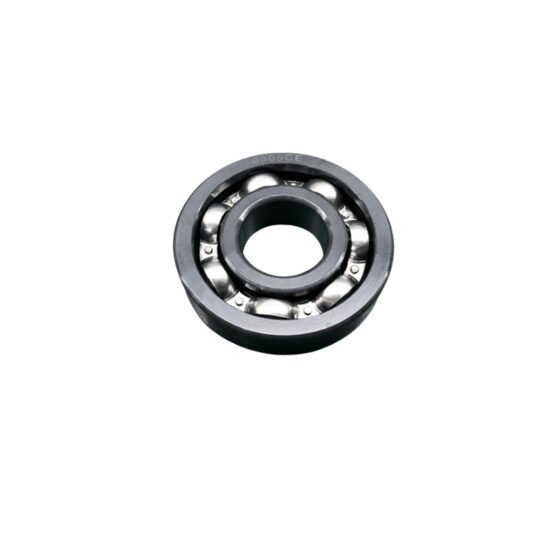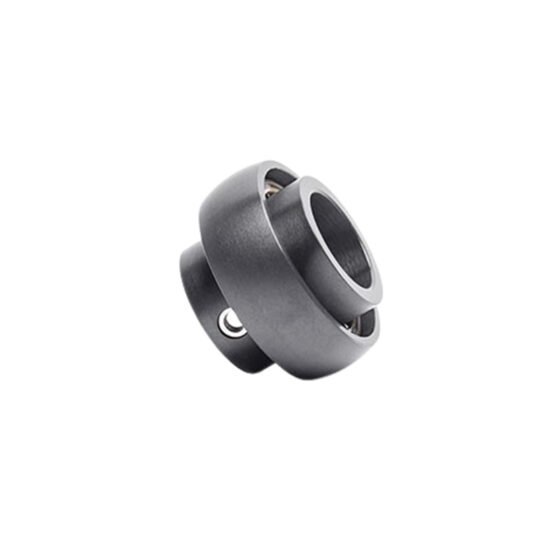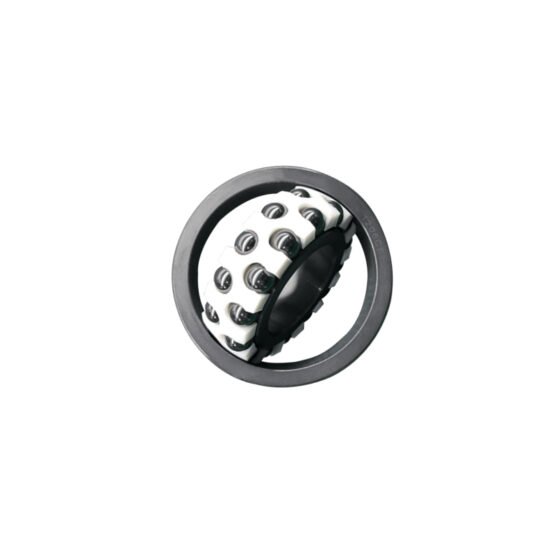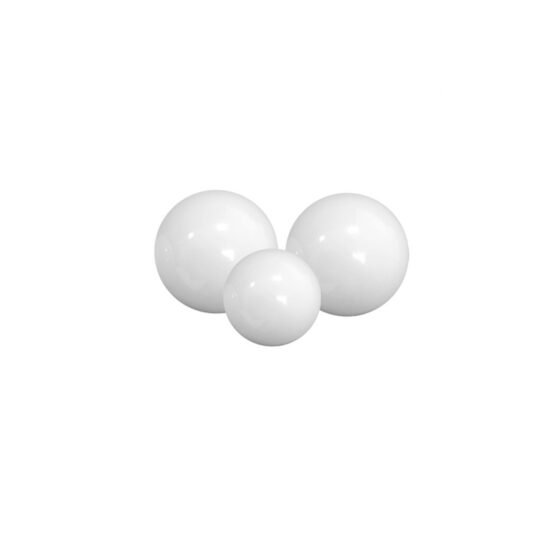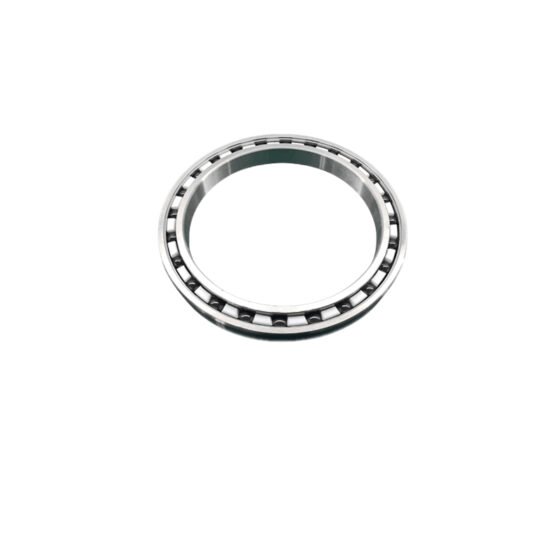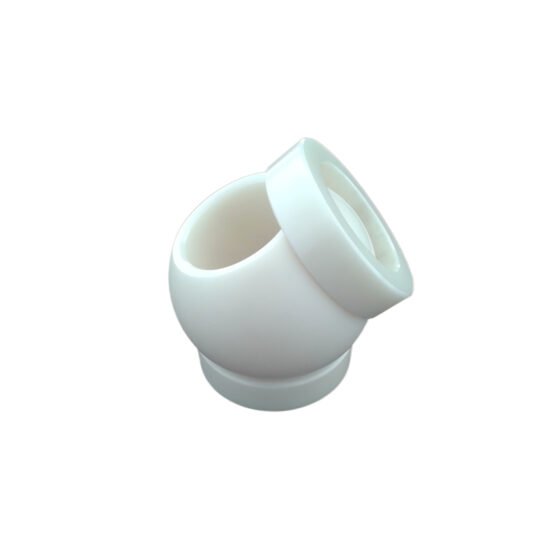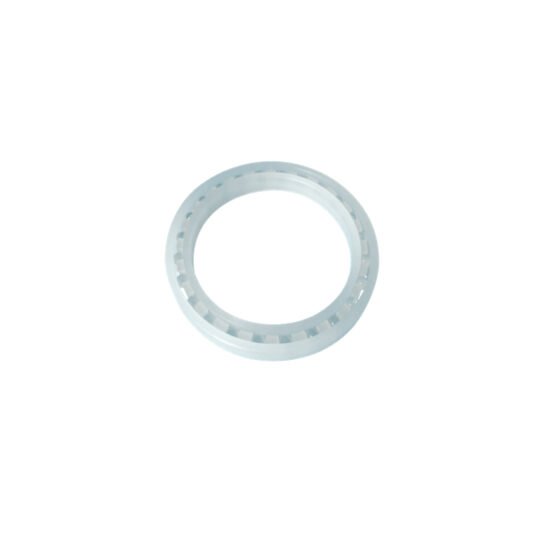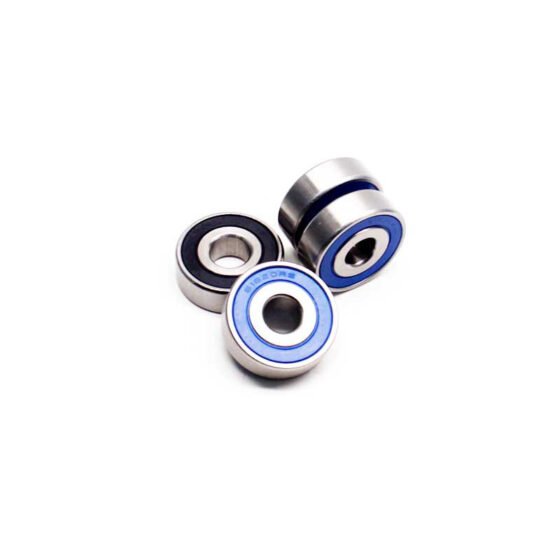SSiC (Siliconized Silicon Carbide) Tapered Rollers are high-performance components designed for extreme industrial environments. These rollers provide exceptional durability, thermal stability, and resistance to wear and corrosion, making them ideal for demanding applications such as high-temperature machinery, chemical processing, and heavy-duty equipment.
Key Features
- Siliconized Silicon Carbide Material
- Combines the strength and hardness of silicon carbide with enhanced thermal and chemical stability from silicon infiltration.
- Tapered Design
- Ensures optimal load distribution, allowing for precise axial and radial load handling.
- High-Temperature Resistance
- Operates reliably in extreme temperatures up to +1,500°C, suitable for heat-intensive applications.
- Wear and Abrasion Resistance
- High hardness and low friction properties extend the service life even under abrasive conditions.
- Corrosion Resistance
- Inert to most chemicals, ideal for use in aggressive chemical and marine environments.
- Lightweight Construction
- Reduces inertia, improving efficiency in high-speed operations.
- Thermal Shock Resistance
- Excellent performance under rapid temperature changes, reducing the risk of cracking or failure.
Applications
- High-Temperature Machinery
- Found in furnaces, kilns, and heat exchangers for reliable performance in extreme heat.
- Chemical and Petrochemical Processing
- Handles aggressive chemicals and abrasive materials in pumps, mixers, and reactors.
- Industrial Equipment
- Used in rollers for conveyor systems, mills, and heavy-duty machinery.
- Aerospace and Defense
- Lightweight, durable material for high-stress components.
- Energy Sector
- Suitable for high-efficiency turbines, boilers, and nuclear reactors.
- Semiconductor Industry
- Non-reactive properties for handling sensitive materials in cleanroom environments.
Advantages
- Durability: Exceptional resistance to wear, thermal stress, and chemical corrosion ensures longevity.
- Precision Load Handling: Tapered design optimizes load distribution for high performance under heavy loads.
- Efficiency: Lightweight and thermally conductive properties enhance operational efficiency.
- Low Maintenance: High resistance to wear and corrosion reduces downtime and maintenance costs.
1. Premium Quality Materials
We use top-grade ceramic materials like Zirconia (ZrO2) and Silicon Nitride (Si3N4) to ensure our bearings offer superior durability, wear resistance, and performance.
2. Tailored Solutions
Our team works closely with you to provide customized bearing solutions that perfectly meet the needs of your industry, whether in packaging, renewable energy, or other specialized fields.
3. Industry Expertise
With years of experience serving diverse industries, we understand the unique challenges of high-performance applications and consistently deliver reliable solutions.
4. Precision Engineering
Our ceramic bearings are manufactured with state-of-the-art technology to achieve unmatched precision and efficiency, ensuring smooth operation and extended lifespan.
5. Competitive Pricing
We combine high quality with cost-effective pricing, offering excellent value to our clients without compromising on performance.
6. Fast Delivery & Global Reach
Our streamlined logistics and global network ensure timely delivery, no matter where you are.
7. Exceptional Support
Our dedicated team is available to assist you every step of the way—from initial inquiry to after-sales service—ensuring a hassle-free experience.
1. What are ceramic bearings?
Ceramic bearings are bearings made from advanced ceramic materials such as Zirconia (ZrO2) or Silicon Nitride (Si3N4). They are known for their high strength, wear resistance, and ability to perform in extreme conditions.
2. What are the advantages of ceramic bearings over steel bearings?
Ceramic bearings offer several advantages, including:
- Higher Durability: Resistant to wear, corrosion, and high temperatures.
- Lighter Weight: Up to 40% lighter than steel bearings.
- Non-Magnetic & Electrically Insulating: Ideal for sensitive applications.
- Low Friction: Reduces energy loss and heat generation.
3. In which industries are ceramic bearings commonly used?
Ceramic bearings are widely used in:
- Packaging equipment
- Renewable energy (e.g., wind turbines)
- Aerospace and automotive
- Medical devices
- Chemical processing
- High-precision tools
4. Can ceramic bearings handle high temperatures?
Yes, ceramic bearings are highly resistant to heat and can operate in temperatures exceeding 1,000°C, depending on the material used.
5. Are ceramic bearings suitable for corrosive environments?
Absolutely! Ceramic bearings are non-reactive to most chemicals, making them ideal for use in highly corrosive environments.
6. What is the lifespan of ceramic bearings?
Ceramic bearings typically last much longer than steel bearings due to their wear resistance and durability. However, the exact lifespan depends on the operating conditions and maintenance practices.
7. How do I maintain ceramic bearings?
Ceramic bearings require minimal maintenance, but to ensure longevity:
- Use the correct lubrication when necessary.
- Keep them clean and free from contaminants.
- Follow proper installation procedures.
8. Do you provide customized ceramic bearings?
Yes, we offer tailored ceramic bearing solutions to meet your specific application requirements. Contact us to discuss your needs.
9. What sizes and types of ceramic bearings do you offer?
We supply a wide range of sizes and configurations, including ball bearings, roller bearings, and hybrid bearings. Check our product catalog or contact us for more details.
10. How can I place an order or request a quote?
Simply visit our Contact Us page, fill out the inquiry form, or reach out to us directly via email or phone. Our team will respond promptly with the information you need.
 LOWIFAR CERAMIC
LOWIFAR CERAMIC

